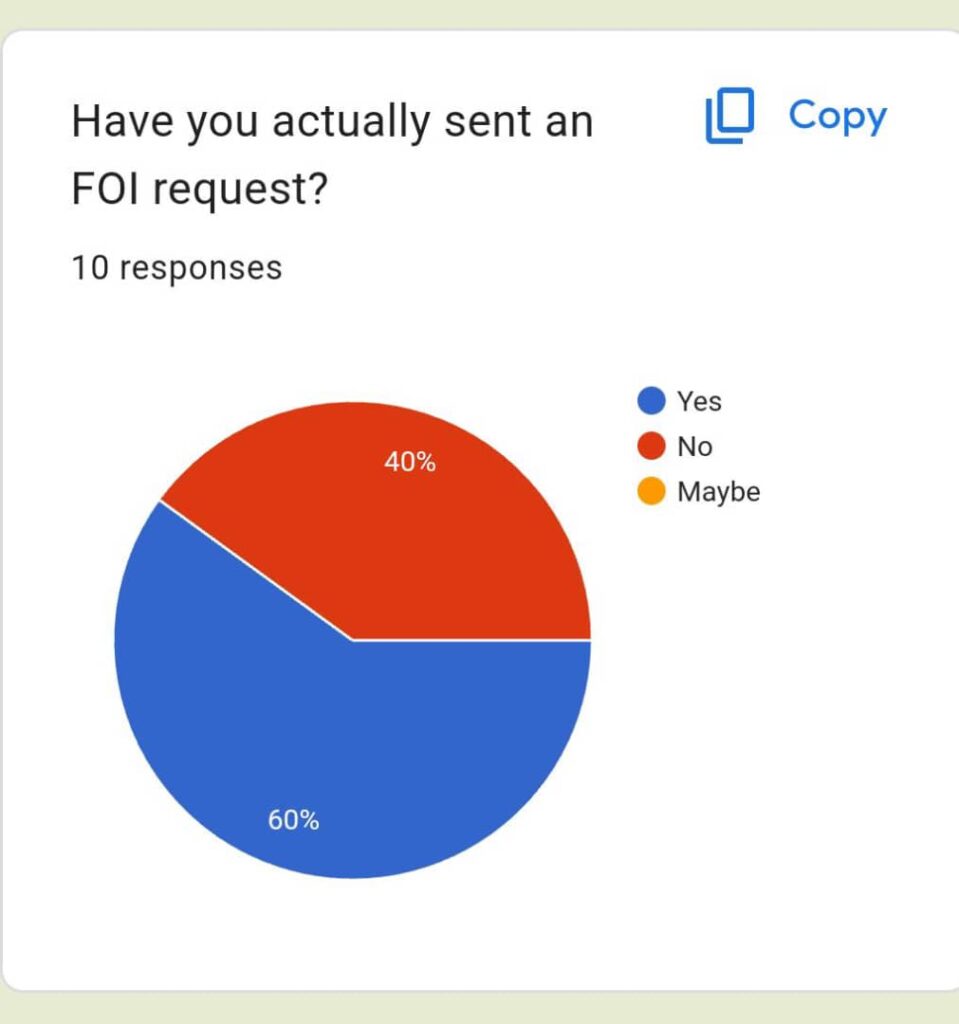The Nigerian government has repeatedly worked against transparency by violating the Freedom of Information (FOI) Act.
The Foundation for Investigative Journalism and Social Justice (FIJ) had met a brick wall most of the times it filed an FOI request.
Understanding that government agencies violated the FOI Act by refusing to freely provide public records on request, FIJ reached out to other newspapers to record the average FOI request experience.
Leaders in the newsrooms of top Nigerian newspapers told FIJ that the government was in the habit of disregarding FOI requests despite being mandated by law to honour such.
READ ALSO: ‘We Were Not Involved’ — Anambra Govt Disowns Arrows of God Orphanage
In 2011, the Nigerian legislature made the Freedom of Information Act one of the laws of the land.
The enactment of the FOI Act took over a decade of persuasion in what Chidi Odinkalu, Nigerian Law Professor, referred to as “the longest legislative odyssey in the country’s parliamentary history” before it became a reality.
The FOI Act states that its purpose is “to make public records and information more freely available, provide for public access to public records and information, protect public records and information to the extent consistent with the public interest and the protection of personal privacy, protect serving public officers from adverse consequences of disclosing certain kinds of official information without authorisation and establish procedures for the achievement of those purposes and; for related matters.”
A survey involving senior members of editorial teams across ten notable Nigerian newspapers showed that the government had rendered the FOI Act ineffective for most journalists.
Although only six of the ten editorial staff who took the survey had used the FOI Act in practice, they all knew what the FOI Act entailed. These senior reporters and editors also understood why FOI requests were necessary.

READ ALSO: After FIJ’s Intervention, Kwara Police Release Journalist With His Laptop
When asked about the effectiveness of the FOI Act, each participant had this to say:
“I have not had the sheer luck of obtaining any response (not even an acknowledgment of the request) each time I have had to request public records on the strength of the act. It’s been rendered ineffective,” the first respondent stated.
“Not effective,” wrote the second respondent.
“It’s mostly a hit or miss. Sometimes people get the information requested for, sometimes they don’t,” said the third respondent.
“For me, to a large extent, it has been effective,” the fourth respondent claimed.
“It hasn’t been really effective; colleagues send in requests but they get ignored or the government departments keep postponing their response. I haven’t sent a request yet but I observe it is frustrating,” explained the fifth respondent.
“It is just a waste of time because no agency will honour it in Nigeria,” the sixth answer read.
“Well, I would say not really effective,” the seventh.
“Sadly Average,” another wrote.
“It has not been largely effective when it comes to seeking credible information,” the penultimate response read.
“For me, the FOI Act has not lived up to its purpose. This has nothing to do with the Act; it is the result of a blatant refusal culture in the Nigerian government and its agencies. It has not been effective for me or the colleagues I know [who] had tried sending FOI requests,” the tenth respondent narrated.


Seven of these ten journalists believed that the FOI Act was not serving its purpose. From what the tenth respondent wrote, the FOI Act was not defective in itself; those who ought to adhere to the dictates of the FOI Act simply refused to do so.
All representatives of the newspapers who participated in FIJ’s survey agreed that the Nigerian government agencies deliberately stifled press freedom by ignoring FOI requests.
When asked about the outcome of their follow-up attempts on FOI requests in the past, seven out of the ten respondents had these responses:
“It has been notably poor.”
“They were not responded to.”
“I never went ahead with it because I knew it would be a futile effort.”
“Well, I’ve only had to send one FOI most of the time. I make friends with officials of [the] government to get access to documents and other information I need for my stories. However, the FOI request I sent which was in 2022 was honoured even though it really took time and several reminders to get it honoured.”
“Slow and frustrating.”
“It led to nothing.”
“A follow-up on an FOI request is always ignored, just like the initial FOI request.”

Nine out of the ten journalists agreed that the government agencies did not care about transparency because they did not honour FOI requests
Although nine of the ten respondents knew that the FOI Act empowered Nigerians to sue the government and its agencies for failing to respond to FOI requests, all ten said that they had never resorted to initiating lawsuits.


In fact, these journalists and their respective newspapers have decided to rely on alternative routes such as undercover investigations to secure government data which should be public information in the first place.
The FOI Act mandates that public records and information be made more freely available to an extent that is consistent with public interest and safety.
FIJ understands that, under the Freedom of Information Act 2011, FOI requests are entitled to a response within seven working days of filing.
READ ALSO: Nigeria’s BPSR Just Ranked 220 Gov’t Websites, But Its Own Isn’t Working
According to Nigeria’s FOI Act, every FOI request that doesn’t receive a response would cost the concerned public office a N500,000 fine.
“Where the government or public institution fails to give access to information or record applied for under this Act or part thereof within the time limit set out in this Act, the institution shall, for the purposes of this Act, be deemed to have refused to give access,” Section 7 (4)(5) of the FOI Act 2011 states.
“Where a case of wrongful denial of access is established, the defaulting officer or institution commits an offence and is liable on conviction to a fine of N500,000.”
The math implies that one valid FOI request left unattended to every day of a month could force a government agency to pay up to N15 million in fines.
Subscribe
Be the first to receive special investigative reports and features in your inbox.















